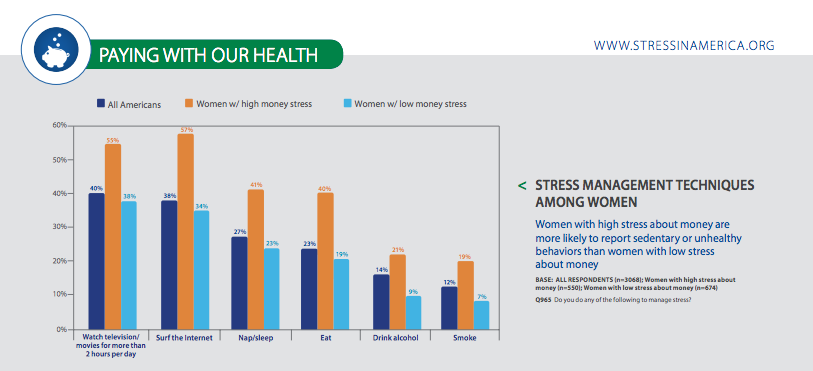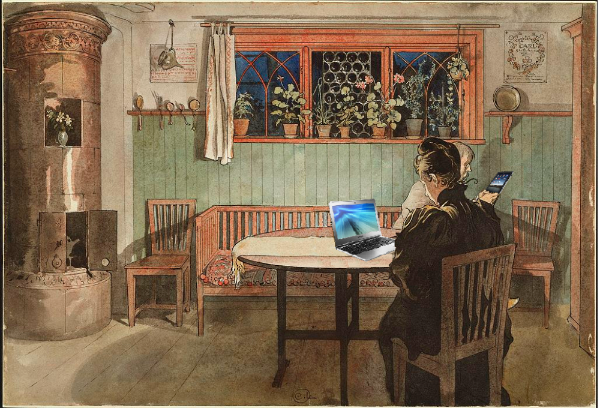How the Idea of 'Having It All' Is Really Hurting Us

By:
Since the advent of post second-wave feminism, modern women everywhere have taken up the challenge of balancing the demands of both work and home life in an attempt to excel in both spheres. Playing the role of Superwoman is systematically encouraged, emulated, and held as the ultimate form of female self-actualization. But as women are confronted with more stressors in the workforce and more pressure in their once-private their social lives, “having it all” has become less of an elaborate juggling act, and more of a hidden health cost.
Rising Stress Levels
According to the American Psychology Association’s annual report on stress in the U.S., overall stress levels in the U.S. have been trending downward, but not among Millennials or women, who are more likely than men to attribute the source of their stress to “money” and “family responsibilities.” In fact, over the seven-year study process, stress levels have been increasing, with no signs of slowing down. The gap in stress levels between men and women have consistently widened year over year, and we’re starting to see the repercussions: a recent study in the UK revealed that men are now closing the life expectancy gap that women have traditionally come out on top of.
 American Psychological Association - apa.org
American Psychological Association - apa.org
A study from the Harvard Business Review revealed that the more women earn, the less healthy they feel. And even though women who earn higher incomes are objectively less likely to be overweight and more likely to clock in more than six hours of sleep per night, they still report feeling less healthy, both mentally and physically. Much of this anxiety directly relates to time scarcity. The more successful a woman is, the more hours she works, which means less time for everything else.
Less Leisure Time
Both genders feel like there simply isn’t enough time in the day, but for women, time scarcity extends beyond the office and seeps into their inner lives. Although both men and women put in an equal amount of cumulative labor, which encompasses paid work, housework, and childcare, a Pew Research study showed that men still enjoy approximately five more hours of leisure time per week than women do. It’s unclear as to where women are spending these extra five hours, but perhaps it’s spent on the unpaid emotional, aesthetic, and labor that goes into the creation, both offline and online, of a Superwoman, Brooke Duffy, Ph.D., Assistant Professor at Temple University, told ATTN:
“The domestic sphere, the professional sphere, and the home sphere are all coming together to create an idealized picture, and it’s exhausting. Think about the incredible amount of energy it takes away from other spaces in life.”
Always On
Duffy spent 2-and-a-half years interviewing up-and-coming female fashion and lifestyle bloggers for her forthcoming book on labor and women in the creative space. In her paper on “having it all” in the age of social media, she identifies and demystifies common tropes associated with female entrepreneurship and concludes that “‘having it all’ is thus part of the carefully constructed, deftly managed, and constantly renegotiated self-brand.” She also told ATTN: that some of her subjects have likened their day-to-day to “being on the fastest hamster wheel possible,” and as a result, these women could “never really be off.”
 Flickr/Mike Licht - flickr.com
Flickr/Mike Licht - flickr.com
While most of her findings draw from the experiences of women who are producing digital content professionally, the pervasiveness of social media and its cultural implications apply to consumers as well, especially for those who strive to emulate the put-together women they see online.
"Superwomen come from a position of relative privilege, social or economic. It’s problematic when we don’t think about the actual production labor that goes into setting things up,” Duffy told ATTN:.
In other words, time for a reality check. For the sake of your mental health and well-being, don’t lean in. Instead, turn off, kick back, and tune out.
